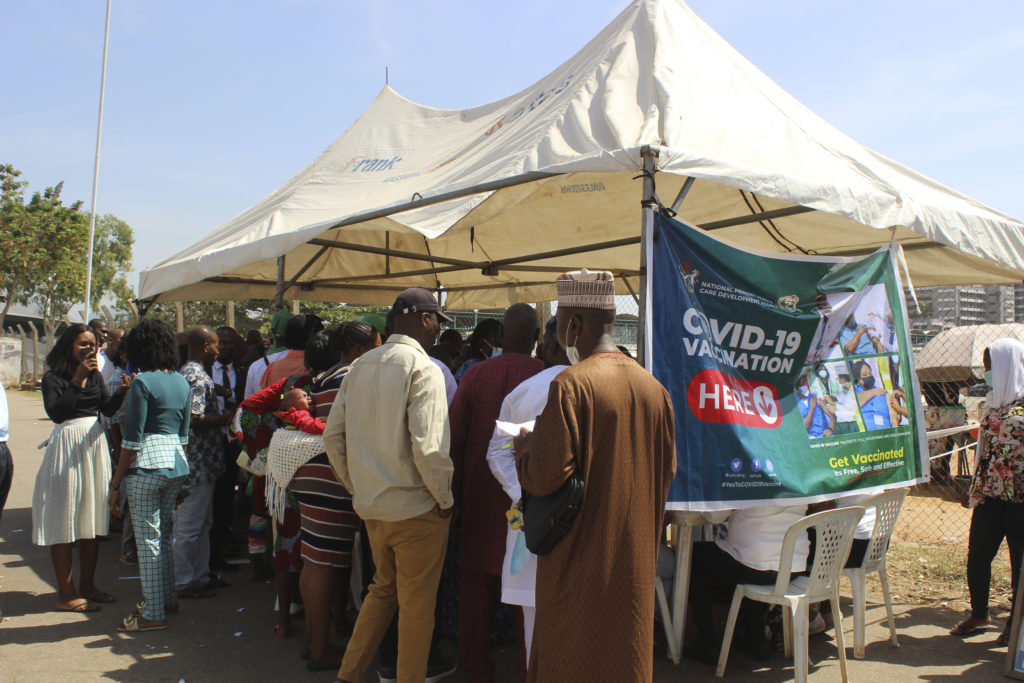The emergence of the new Omicron covid variant must push the UK government to respond swiftly by supporting a crucial global agreement alongside other measures to address global vaccine inequity, or else we risk being back to square one.
For over a year, the UK government – along with the EU and Switzerland – have been stubbornly blocking a proposal, known as the TRIPS waiver, to temporarily waive patents and trade secrets on covid vaccines, tests and treatments at the World Trade Organisation (WTO). This has continued even in the face of growing support from over 100 countries, including the US and New Zealand, countless UN Human Rights experts, the World Health Organization (WHO), and even the Pope.
Last week, the WTO cancelled the Twelfth Ministerial Meeting in Geneva where the TRIPS waiver was to be discussed as concern spiked surrounding the threat of the Omicron variant. The depressing irony is the new stronger variant has emerged as a result of our failure to reach global vaccine targets and reduce the amount of virus in circulation. The waiver proposal is not a silver bullet to end the pandemic, but it is one critical step along that path and it makes no sense for Boris Johnson and his ministers to stand in its way.
Inequity in vaccine access remains stark. Whilst we’re expanding the booster programmes across the UK, and amidst the news this month that 600,000 AstraZeneca shots have been wasted, less than 6% of people in low income have received any vaccines at all and the vast majority of those cases, just a single dose.


The situation for diagnostic tests isn’t any better. In the UK there are 4,700 tests per thousand people, whereas in a country like Mozambique there are 30 tests per thousand people. As a result, six in seven cases go undetected in Africa.
More treatments for covid are being recommended by the WHO, but the enforcement of intellectual property rights are preventing countries that have existing manufacturing capacity – like Brazil and China – from being able to produce them. Throughout this pandemic we’ve seen shortages of masks, ventilators and testing reagents due to IP barriers.
Supplies need to be boosted, and as part of that, production needs to be decentralised across the world. South African President Cyril Ramaphosa put it clearly at the covid summit at the White House in the summer: vaccine doses are welcome but “developing countries should be enabled to manufacture their own vaccines”, as well as tests and treatments.
As the new more infectious and harmful variant emerges in the country, the UK government must be taking every step to ensure widespread access to vaccines to reduce the amount of virus in circulation. Without bold action, we will continue to fear the potential harm new variants might bring.
Waiving trade secrets would release critical information related to how to manufacture vaccines, tests and treatments as well as safety and efficacy data which are all critical to facilitating the rapid diversification and scaling up of production. This in turn would mean manufacturers from different countries and regions can collaborate safe in the knowledge that they can import and export raw materials and other inputs without fear of litigation for potential patent infringement.
Alongside the waiver, Labour’s ten-point plan to transform the production of vaccines and distribution of vaccines and other tools explains the essential role the pharmaceutical companies will need to play in sharing their know-how of the manufacturing process. Though reverse engineering of vaccines is now happening, training from the industry would help expedite the production process, helping manufacturers to come to the market quicker. The World Health Organisation’s covid Technology Access Pool (C-TAP) offers a route to do this openly and transparently.
To build the base of potential vaccine manufacturers and transfer know-how to them, they need to be visible. So, we’re also calling on CEPI (Centre for Epidemic Preparedness Initiative) to publish their latest database of potential manufacturers in full in order to enable more north-south and south-south manufacturing collaboration.
Underpinning this we need a centrally managed programme of investment to establish and equip existing facilities with the necessary facilities and supplies to produce active pharmaceutical ingredients, provide vaccine ‘fill and finish’ services or manufacture covid tools from scratch. Lastly, we need to increase investment and global support for health system strengthening, so countries have the healthcare providers ready to vaccinate and treat people in need.
To implement this plan will take global coordination, but where is the UK leadership? Boris Johnson failed to even turn up to President Biden’s global covid summit, despite being scheduled to speak. His own backbenchers have joined parliamentarians from across all parties and both houses in calling for the UK to stop blocking the waiver, but the prime minister himself has stayed silent on the issue.
Ministers continue to say that there are ‘no IP barriers’ preventing access to covid tools. This statement ignores the evidence and belittles the calls from South Africa, India and the many other countries struggling to access lifesaving products who are asking for the UK’s support to enable them to make their own pandemic tools – rather than rely only on donations.
Cases remain high across the world and this latest variant must be the factor that springs the UK government into action. They should use this moment to end their opposition to the waiver proposal and take this vital first step towards increasing global vaccine production to the levels we need and ending this pandemic for us all.









